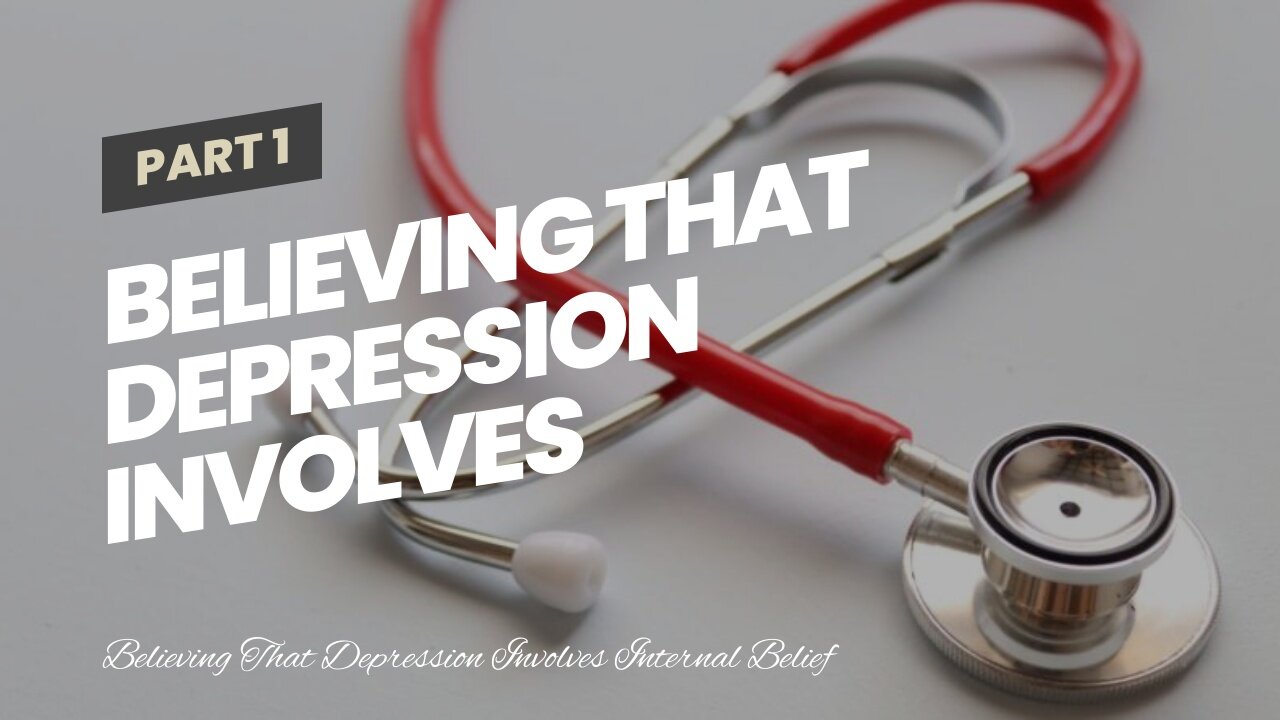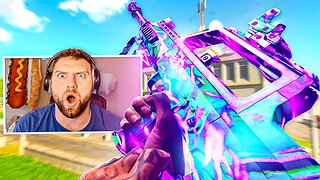Premium Only Content

Believing That Depression Involves Internal Belief Systems Characterizes
https://www.mrdepression.com/believing-that-depression-involves-internal-belief-systems-characterizes/
Believing That Depression Involves Internal Belief Systems Characterizes
Believing That Depression Involves Internal Belief Systems Characterizes Believing That Depression Involves Internal Belief Systems Characterizes. A central theme in the literature on depression is that of a learned helplessness model. Buddhists, for example, believe that the ultimate source of control lies within ourselves. Hence, if you believe that you can control your internal belief systems, you are less likely to suffer from depression. However, self-report measures of depression are helpful in identifying depressive symptoms. It is important to understand the sources and limitations of self-report measures in order to understand whether they reflect the true nature of depression. Fight Back Depression Seligman’s learnt helplessness model of depression Martin Seligman’s learned helplessness model of depression proposes that depressive disorders are cognitive in nature. The theory has several implications. First, it can explain why people with depression seem passive, without actively trying to improve their mental state. The model is based on research involving dogs. When the floor is electrified, dogs learn how to escape. As a result, these dogs are more likely to suffer from depression than non-depressed individuals.
The study of positive psychology by Martin Seligman highlights the importance of prospection, or evaluating the future. Prospection differs from memory and perception, but is relevant to unraveling learned helplessness. It also reveals the link between prospection and optimism. This link enables researchers to study the causes of depression and the mechanisms underlying optimism. The model is supported by the work of children, military personnel, and teachers.
While the concept of learned helplessness may seem complicated, it has important implications for the study of depression. It suggests that people with depression believe highly desired outcomes are unlikely to occur. In addition, they may have no expectations of changing them. They therefore view the future as uncertain. However, it is possible to train our brains to view negative events in a positive light and overcome these feelings. The study of learned helplessness is a key part of understanding the nature of depression and possible treatments.
The study also found that people suffering from depression are more likely to experience extreme negative reactions to failure. People with learned helplessness are more likely to develop phobias, shyness, and loneliness. The study of failure and its effects on the brain is widely used in education. Research has found that low academic self-esteem and early failure in school affect a person’s future success. However, it is important to note that depression and learned helplessness often coexist.
Believing That Depression Involves Internal Belief Systems Characterizes. True or false?
The learned helplessness model has several implications for understanding depression. This model is consistent with previous research on the neural circuitry that underlies the experiences of control and escape. For example, rats that have experienced escape respond to stressful stimuli as if they could escape. They are inhibited in their escape response by the prelimbic-dorsal raphe nucleus, which serves as an expectation center. In addition, the prelimbic-dorsal raphe nucleus inhibits the dorsal raphe nucleus. This inhibition blunts the effects of stressors and prevents them from having the desired effects.
While the theory is still in its infancy, it is important to note that a variety of social settings are associated with increased levels of learned helplessness in people. Research by Maier and Seligman may point to new ways to treat depression. But further research is needed. And the model is not a panacea for depression. The findings have implications for both mental health and personal relationships. It is important to note that the model of learned helplessness is not a cure, but rather an additional component to the treatment process. Buddhist view of ultimate internal controllability The Buddha explained to his disciples that death and rebirth are both inevitable. He emphasized the importance of cultivating virtue, which prevents the individual from fearing death. The Buddha said that one must learn to face death with a sense of ca...
-
 LIVE
LIVE
JuicyJohns
36 minutes ago🟢#1 REBIRTH PLAYER 10.2+ KD🟢
77 watching -
 14:31
14:31
Adam Does Movies
13 hours ago $2.78 earnedAlien: Earth Episode 5 - Recrap
32.5K2 -
 12:54
12:54
Michael Button
18 hours ago $2.48 earnedWhat If We’re Just the Most Recent Civilization?
11.6K14 -
 1:15:19
1:15:19
Surviving The Survivor: #BestGuests in True Crime
2 days agoDonna Adelson's Defense Witnesses Get Caught Up on Stand; Will Jurors Believe Them?
2.55K -
 LIVE
LIVE
The Bubba Army
23 hours agoTyson vs Mayweather SUPERFIGHT! - Bubba the Love Sponge® Show | 9/05/25
1,951 watching -
 25:26
25:26
World2Briggs
19 hours ago $0.90 earnedTop 15 Most Visited Cities in the World
10.9K1 -

BEK TV
1 day agoTrent Loos in the Morning - 9/05/2025
10.4K -
 LIVE
LIVE
FyrBorne
3 hours ago🔴Warzone M&K Sniping: This May Be The Most Broken Update Yet
48 watching -
 10:59
10:59
Degenerate Jay
17 hours ago $1.71 earned007 First Light Is The James Bond Game Fans Deserve
25.3K2 -
 9:11
9:11
Faith Frontline
15 hours agoTucker Carlson SHOCKED As Cliffe Knechtle Reveals God’s Chosen People
14.4K8